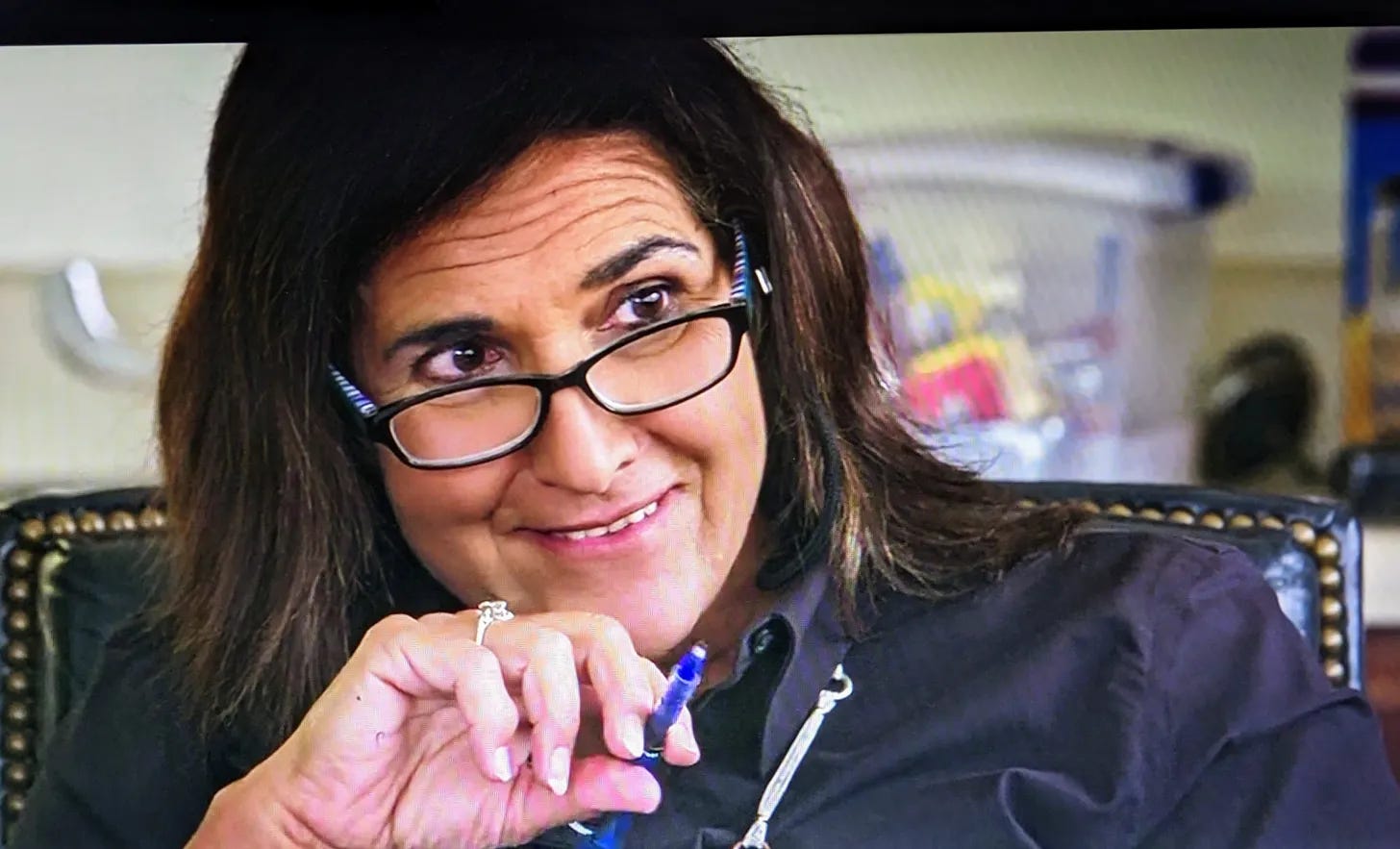Two Wins, and a Sad Loss.
Cheers to gathering in public places, and to reading banned books out loud. Sorrow for losing a dynamic judge who changed countless lives one at a time.
During Banned Books Week, the Georgetown Public Library in Washington DC hosted a reading of James Baldwin’s banned books. This is a photo of a flyer for the program. (Deborah Fallows.)
Dear Readers,
First the good news:
The first week of October is national Banned Books Week, which calls attention to book-challenges and celebrates the freedom to read. Our Towns went to a public event at DC’s Georgetown Public Library to hear talented readers from DC’s Guillotine Theatre. Eight actors read selections from several of James Baldwin’s works, which DC’s public libraries are highlighting for an entire year, marking a century since Baldwin was born in 1924.
Deb’s piece about the reading is here, including three takeaways on the value of reading banned books out loud:
Announcing for the record, that while some people are attacking books, others are celebrating them. Public read-outs give new voice to the choir of believers.
Saying words out loud can have consequences. Some words actually do carry official power. When officiates say: I hereby pronounce you.. When juries say: We find the defendant.. When authorities in a government say: We proclaim this day..
While a public reading does not carry formal authority, it can convey a powerful message, and sometimes even consequences.The cost of not performing these readings, of not speaking out loud would create a profound silence.
The renovated ‘400 Block’ in downtown Wausau, Wisconsin, part of a sweeping civic-renewal program there. (Deborah Fallows.)
The second piece of good news is what we’re calling the “civic soft power” that is revealed in a town’s public places. When we visited Wausau, Wisconsin for the first time early this month, we noticed the places where Wausau decided to spend its creative efforts and money: The downtown square, the river walk, the YMCA, the ski hills, the new children’s museum. And lots more. What we learned was that if you spend time in a town’s public places and spaces, you capture a chance to peer into the values or make-up of a town. And you get to literally rub the shoulders of a town that you don’t normally touch. You can read the whole post here.
And now the sad news: Our Towns is deeply sorry to report the passing of Judge Joanna Tabit, of Charleston, West Virginia. Anyone who has seen our HBO documentary Our Towns will surely remember the young, dynamic Judge Tabit, who ran the juvenile drug court in Charleston. With her sympathetic, patient, but unyielding personal manner, she coaxed countless young people from Charleston away from a certain future of prison or worse, onto life courses where they could thrive.
Judge Joanna Tabit of Charleston, West Virginia, from the HBO documentary Our Towns. (Steven Ascher / HBO.)
Our favorite mental image is of Joanna Tabit inside her courtroom, wearing a black robe, peering over her glasses into the eyes of a young, chronic offender. “We’re not giving up on you,” she announced, “ You can’t give up on yourself.” In the photo above she is in a conference with members of her team before she steps onto the bench, talking about about each young person, each family, each path that would be best for them.
Jim has written about Judge Tabit on his Substack, here. Or please watch her in the film for more. Joanna Tabit’s death from an aggressive cancer took all of us by surprise. We are sorry for the loss to her friends and family, to Charleston, and to the lives of those who passed through her courtroom.
Thanks for reading.







